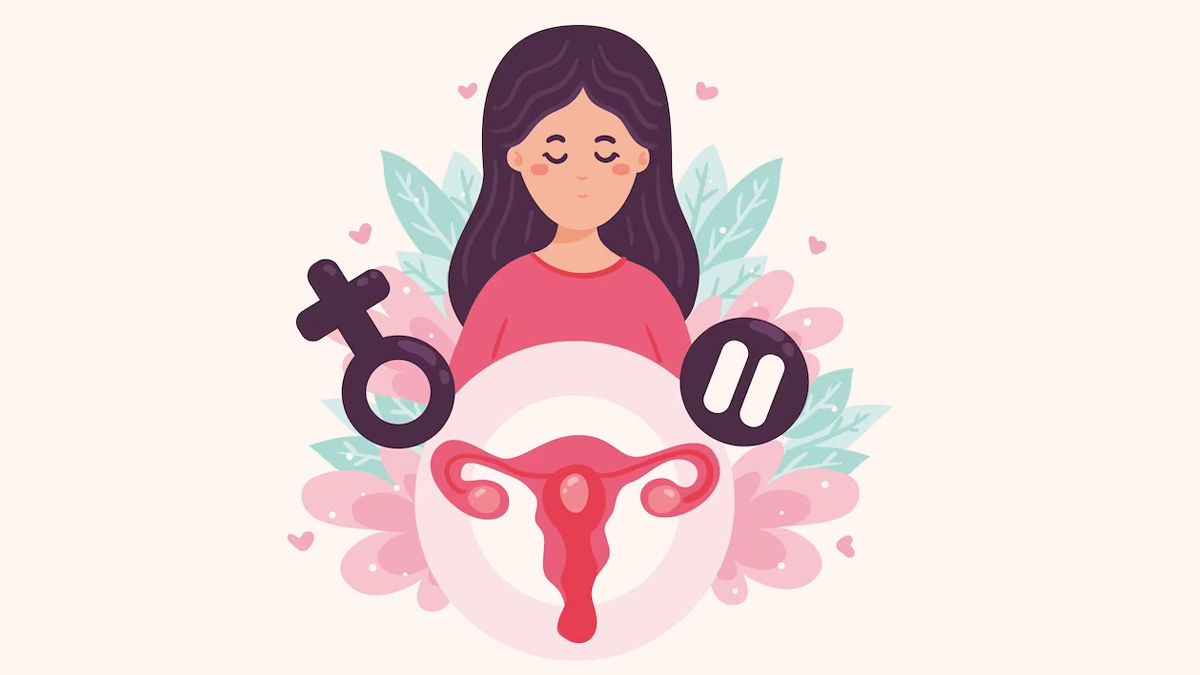
Getting a good night's sleep is a common problem for many women during their menstrual cycle. Hormonal swings, pain, and other menstruation symptoms can make relaxing and falling asleep difficult. Here are seven strategies for sleeping peacefully during your period, so you may wake up feeling refreshed and energised.
Table of Content:-
Prioritise A Consistent Sleep Schedule
Establishing a regular sleep routine is crucial for promoting quality sleep. Try to maintain consistent bedtimes and wake-up times, even during your period. By regulating your body's internal clock, you can improve your chances of falling asleep more easily. Aim for seven to nine hours of sleep each night to ensure your body gets the rest it needs.
Also read: From Promoting Sleep To Relieving Stress: Expert Lists Health Benefits Of Soaking Feet In Warm Water
Create A Relaxing Bedtime Ritual
Engaging in a soothing routine before bed can help signal your body that it's time to wind down. Consider activities such as reading a book, taking a warm bath, practising gentle stretches, or listening to calming music. Avoid stimulating screens, such as smartphones or laptops, at least an hour before bed, as the blue light emitted can disrupt your sleep cycle.

Invest in Comfortable Bedding
During your period, your body temperature may fluctuate, leading to feelings of warmth or coldness. Choose bedding that suits your comfort needs, such as breathable cotton sheets or temperature-regulating mattress toppers. Wearing loose, comfortable sleepwear can also aid in temperature regulation and relieve any pressure on your abdomen.
Utilise Heat Therapy
Many women experience cramps and abdominal discomfort during menstruation. Applying a heating pad or hot water bottle to your lower abdomen can provide soothing relief. The warmth can help relax tense muscles, ease pain, and promote relaxation, facilitating a more peaceful sleep.
Practice Relaxation Techniques
Stress and anxiety can exacerbate period-related sleep difficulties. Incorporating relaxation techniques into your bedtime routine can help calm your mind and body. Deep breathing exercises, meditation, or gentle yoga stretches can alleviate tension and promote relaxation. Consider using guided meditation apps or calming music specifically designed to induce sleep.

Hydrate and Eat Sleep-Inducing Foods
Staying hydrated is vital during your period, but avoid drinking too much fluid close to night to avoid repeated trips to the toilet. Also, before going to bed, be cautious of your meal choices. Choose sleep-friendly snacks like a small bowl of whole-grain cereal, a banana, or a cup of herbal tea to induce calm.
Also read: Sleep And Immune System: Expert Explains The Impact Of Not Taking Adequate Sleep
Consider Menstrual Products for Comfort
Choosing the right menstrual products can make a significant difference in your comfort level during sleep. Experiment with different options like tampons, pads, menstrual cups, or period underwear to find what works best for you. Select products designed for overnight use, providing enhanced absorption and leak protection, ensuring a worry-free sleep.
Menstruation can bring its fair share of challenges, including disruptions to your sleep routine. By implementing these seven effective tips, you can improve your chances of sleeping comfortably during your period.
Prioritise a regular sleep schedule, develop a calming bedtime routine, purchase comfortable bedding, and use heat therapy to relieve discomfort. Incorporate relaxation techniques, drink plenty of water, eat sleep-friendly meals, and use proper menstruation products. Remember that taking care of yourself and prioritising regular sleep can contribute to overall well-being and make it easier to navigate your period.
Also watch this video
How we keep this article up to date:
We work with experts and keep a close eye on the latest in health and wellness. Whenever there is a new research or helpful information, we update our articles with accurate and useful advice.
Current Version
